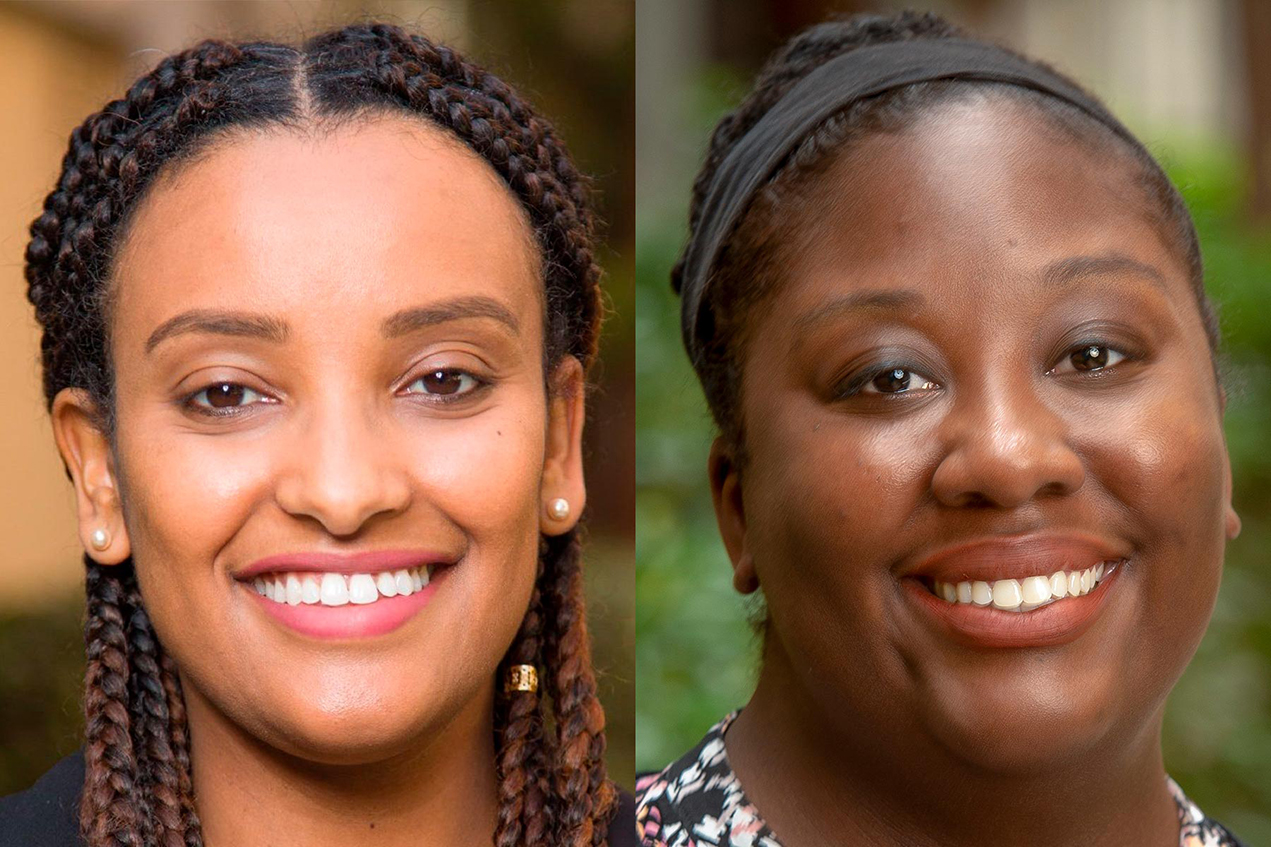Living through 2020 sent a lot of people to therapy — particularly college students of color. COVID-19 hit Black and Latino families hard, and Black students saw their community’s centuries-long struggle against racism lead to national protests.
At USC, that therapy often took the form of virtual counseling sessions with clinical faculty from USC Student Health’s Counseling and Mental Health department. Its therapists helped students navigate through one crisis after another last year.
“It’s definitely not something we were taught at school: how to manage a pandemic while at the same time support others through this social movement and civil unrest,” said Kendra Archer, staff clinical social worker and clinical instructor of psychiatry and behavioral sciences at the Keck School of Medicine of USC.
As part of efforts to address the needs of students of color, USC Student Health hired more diverse counselors, redoubled student outreach and made therapists more accessible to students.
Archer, for example, embedded with the Center for Black Cultural and Student Affairs. That means she dedicates hours of her schedule to students served through the center. She is just one of many counselors to embed with USC’s cultural organizations, such as La CASA, the Asian Pacific American Student Services and the LGBTQ+ Student Center. Counselors embedded with these centers also work with their leaders to develop programs specific to the students’ needs.
That initiative was a direct response to student requests for more diverse therapists. Students who are reluctant to seek mental health services might be more open if they see a therapist who looks like them and has lived through similar experiences, the counselors say.
New mental health professionals help USC students cope with 2020
Though many students knew about USC Student Health’s mental health services, it wasn’t until 2020 that the unit was able to hire more staff, according to clinical psychologist Edden Agonafer: “We had a diverse faculty, but it just wasn’t enough. Students kept telling us, ‘I want to see if you have this type of clinician.’”
The 2020 hires meant that when students turned to USC Student Health for help, therapists were ready for them.
Archer remembers that June was particularly difficult. It was a few months into the COVID-19 pandemic, and students were starting to realize that life wouldn’t return to normal anytime soon. At the same time, the country erupted in protests over the killing of George Floyd. “We have been dealing with multiple crises happening all at the same time with COVID, civil unrest and the ongoing assault on Black lives that has been happening in society for centuries,” Archer said.
Therapists and counselors had to help students while experiencing their own turmoil. The professionals providing mental health services were often going through the same challenges as their patients, Agonafer said.
“As a therapist, there were moments where we could share, ‘this is a lot, we’re hurting just as much,’ and I think there’s power in that,” said Agonafer, clinical assistant professor of psychiatry and the behavioral sciences at the Keck School of Medicine.
This dynamic may have helped therapists connect with their patients on a personal level, she added.
Building campus community despite the need for distance
Archer often uses group and individual sessions to stress the importance of self-care. This is “me time,” she said: activities meant to relax and inspire you. This can be meditation, exercise or even activism that involves building coalitions. It’s also important to say “no” to requests or activities to avoid overcommitting yourself too much.
“It’s awesome to want to engage and act and be involved,” Archer said, “but setting boundaries is important.”
Agonafer was impressed to see the USC community’s shared response to the time of crisis, particularly to the national outcry over the killing of unarmed Black men and women by police officers.
Students, staff and faculty participated in protests. Agonafer found it refreshing and welcome because USC isn’t particularly known for its activism.
“That was unique because that is not the culture at USC,” she said.
The university also responded by hosting a wave of online forums and training sessions focused on diversity, cultural awareness and anti-Blackness. It seemed like a different department hosted a training program every week, Agonafer recalled.
Those collective efforts helped build a sense of belonging at USC at a time when people were asked to socially distance due to COVID-19. Archer feels comfort in that sense of community and the idea that we are all overcoming shared challenges.
Said Archer: “I find hope in being able to have a collective experience with more people.”
USC Student Health looks to eliminate barriers to mental health care
USC Student Health prioritized outreach and the Department of Psychiatry and Behavioral Sciences ramped up recruitment of new clinical faculty to meet increased demand in 2020, but the department already had been growing.
Since 2017 — when USC Student Health became part of Keck Medicine of USC — mental health services for students have increased significantly. The university has brought in dozens of licensed mental health professionals, including psychiatrists, psychologists and clinical social workers. College students nationwide have reported higher rates of depression and anxiety, and recent surveys hint at worries over the future.
The Department of Psychiatry, the academic department for clinical mental health practitioners in USC Student Health, successfully recruited 50 new faculty members last year. Roughly 66% are women, 55% are people of color and 30% are underrepresented minorities. The department also has several counselors who specialize in the needs of LGBTQ+ students.
Ultimately, USC Student Health aims to eliminate barriers to mental health by making it more welcoming and accessible. Those barriers include cultural stigmas around mental health or the historic health disparities and systemic racism experienced by communities of color.
“It’s really meaningful,” Archer said, “that some of those barriers and stigmas are coming down.”
— Gustavo Solis


